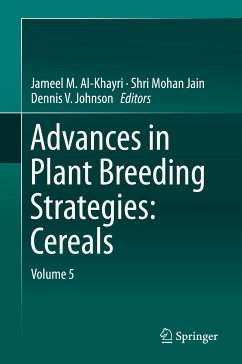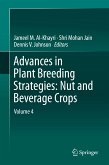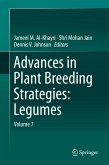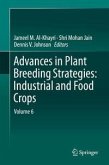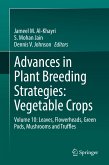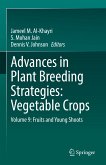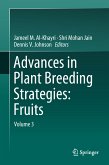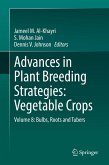Plant breeders and geneticists are under constant pressure to sustain and expand food production by using innovative breeding strategies and introducing minor crops, which are well adapted to marginal lands, provide a source of nutrition, and have abiotic and biotic stress tolerance, to feed an ever-increasing human population. The basic concept of this book is to examine the use of innovative methods augmenting traditional plant breeding towards the improvement and development of new crop varieties, under the increasingly limiting environmental and cultivation factors, to achieve sustainable agricultural production and enhanced food security. In addition to developing improved crops for innovative industrial products such as pharmaceuticals and food additives, biofuels, oils and textiles. Three volumes of this book series were published in 2015, 2016 and 2018, respectively: Volume 1. Breeding, Biotechnology and Molecular Tools; Volume 2. Agronomic, Abiotic and Biotic Stress Traits and Volume 3. Fruits. In 2019, the following four volumes are concurrently being published: Volume 4. Nut and Beverage Crops, Volume 5. Cereals, Volume 6. Industrial and Food Crops and Volume 7. Legumes. This Volume 5, subtitled Cereals, focuses on advances in breeding strategies using both traditional and modern approaches for the improvement of individual crops. It addresses important staple food crops including barley, fonio, finger millet, foxtail millet, pearl millet, proso millet, quinoa, rice, rye, tef, triticale and spelt wheat. Chapters are written by 60 internationally reputable scientists from 14 countries and subjected to a review process to assure quality presentation and scientific accuracy. Each chapter begins with an introduction covering related backgrounds and provides in-depth discussion of the subject supported with 138 high quality color figures, and relevant data in 78 tables. The chapter concludes with recommendations for future research directions, appendixes of genetic resources and concerned research institutes and a comprehensive list of pertinent references to facilitate further reading. This book series is a valuable resource for advanced students, researchers, scientists, commercial producers and seed companies as well as consultants and policymakers interested in agriculture, particularly in modern breeding technologies.
Dieser Download kann aus rechtlichen Gründen nur mit Rechnungsadresse in A, B, BG, CY, CZ, D, DK, EW, E, FIN, F, GR, HR, H, IRL, I, LT, L, LR, M, NL, PL, P, R, S, SLO, SK ausgeliefert werden.

